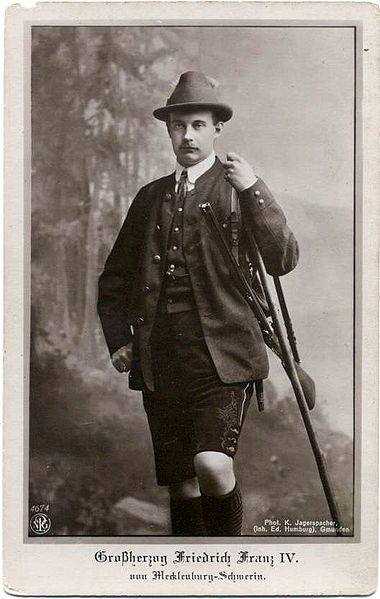Giancarlo Casale’s recent work,
The Ottoman Age of Exploration, is an innovative attempt to rewrite not only Ottoman history but also the broader understanding of the Age of Exploration, what constituted it and who its participants were. Taking the sixteenth century as his subject, Casale explores Ottoman activities in the Indian Ocean, drawing compelling parallels between the way Ottomans conceived of and executed this unprecedented expansion and the way historians traditionally conceive of the European histories of early exploration. Ultimately, Casale asks the question “Did the Ottomans participate in the Age of Exploration?” and answers boldly that they did.
Proceeding chronologically, Casale begins with what he considers to be the inaugural event in the Ottoman Age of Exploration, the conquest of Egypt by Selim the Grim, whom Casale creatively renames Selim the Navigator in a nod to his European counterparts. From there, Casale inducts the reader into a fascinating story of intellectual awakening, world war, political infighting, the construction of a worldwide “soft empire,” and the loosing of an army of merchants into the Indian Ocean. Casale makes the most of already compelling subject matter, colorfully populating this world with sultans, queens, scholars, pirates, cannibals, spies, and at least one morbidly obese octogenarian admiral apparently too ugly and pugnacious to be omitted.
Casale’s decision to rename Selim the Grim and to title his inaugural chapter “Selim the Navigator” is but the opening salvo in an unrelenting effort to unseat entrenched notions about Ottoman history, an effort which proves immensely fruitful. Casale, in clearing initial objections to an Ottoman Age of Exploration, discards the traditional question “Why didn’t the Ottomans explore the Americas” and asks instead “Why should they?” Pointing out that the Europeans only undertook New World exploration in an attempt to access the Indies, Casale legitimatizes Ottoman apathy about the Americas. After all, with Egypt conquered, they had access to the most direct route between the Mediterranean and India. Similarly, Casale goes on to directly challenge notions of the Ottomans as an exclusively land-based empire, of presumed state disinterest in sponsoring commercial activity, of extra-regional politics as an exclusively European concern, and of Islamic nations as intellectually indistinct and interchangeable. The result is a startlingly fresh picture of the Ottoman Empire as a Mediterranean state much like any other, one which realized he tremendous political and economic advantages of control in the Indian Ocean and worked out the means of achieving that control in ways not entirely unfamiliar to the student of European exploration.
Throughout the narrative, Casale attempts to highlight four key themes which he considers to be both commonly agreed upon as characteristic of the Age of Exploration for European powers and particularly relevant to the characteristics of the Ottoman participation in this period. He first notes the relative conceptual and geographical isolation of explorers prior to their initial voyages of discovery. With the onset of these voyages, Casale then notes the development of a new political ideology in the exploring nation that offers a new conception of sovereignty. For the actualization of this new ideology, he points to the importance of new technologies particularly military and transportation technologies. Finally, Casale sees during the Age of Exploration an expansion of intellectual activity facilitated by new information streaming in from abroad.
As Casale weaves these themes into his narrative, not all appear equally convincing. Certainly, the author proves near definitively that the Ottomans were no more connected to the Indian Ocean than their European counterparts prior to the conquest of Egypt and offers a withering indictment of those who baselessly attempt to collapse the Turkish worldview into the Arabic based simply on a common religion. In the same way, Casale gives an impressive catalogue of new and forward thinking texts—travel narratives, geographies, histories, and maps—produced by the Ottomans, most written and disseminated in spite of the absence of a printing press.
On the other hand, the development of a new political ideology and the employment of new technology present less straightforward pictures. The place of advanced weaponry has a direct parallel to European history, particularly as a commodity for export and as a tool for necessary cementing overseas relationships, but Casale admits that the Ottomans did not make the transition to large sailing vessels that Europeans did. Instead he proposes that they adapted traditional technologies to new uses, but these adaptations seem less novel than Casale would have the reader believe, consisting largely of exploiting the traditional advantages of shallow-bottomed, oared ships: the ability to travel into the wind and escape into shallow waters. Similarly, the suggestion that the “Universal Caliphate” and its ideology of extra-political sovereignty represented something new is belied by Casale’s regular reference to the longstanding Islamic conception of
umma. This invites questions about whether what was actually new was the political ideology or the Ottomans ability to actualize it on a global scale.
These and other problems arise in part from Casale’s decision to structure his work as a chronological narrative, specifically rejecting the notion that it might be comparative. While this undoubtedly enhances the readability of the work and lays the necessary historical groundwork for later studies, it leaves the reader with a host of unanswered questions. What are the essential features, as distinct from the incidental manifestations that characterize the Age of Exploration? Why did Ottoman notions of control and empire differ so dramatically from the Portuguese? The questions could be multiplied and, perhaps, could have been addressed had the author elected to structure the book as a comparative study or, at the very least, used the four themes rather than time as the primary organizing principle.
Nevertheless, these questions are as much a testament to the work’s heuristic value as to any structural defect. In
The Ottoman Age of Exploration, Casale invites the historian and the reader into a reconceived world of the sixteenth century Indian Ocean, one which has been methodically researched and persuasively reconstructed. The result is thoroughly compelling work which challenges the traditional thinking of historians and will hopefully usher in a new paradigm for investigating both the Ottomans and the broader Age of Exploration. A riveting collection of true stories that would put Hollywood epics to shame, this extremely accessible book has my unqualified recommendation for even the general public.






